

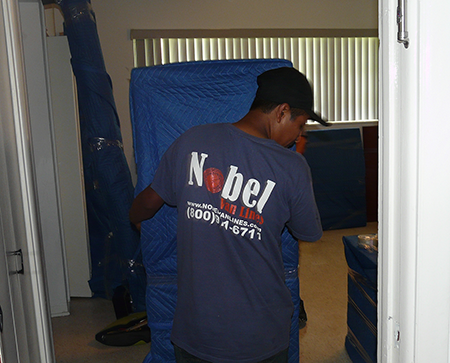 Moving to Amsterdam from US? Here’s What You Need to Know
Moving to Amsterdam from US? Here’s What You Need to KnowFrom many points of view, Amsterdam is the perfect destination for both families and single individuals looking for a great work life balance and a good paying job. The Netherlands will impress you with its family-friendly approach, cycling culture, and warmth.
However, for an American, moving to the European Union permanently can be tricky.
A valid residence permit is a must in the beginning, but on the same note, you’ll also need to learn more about the citizen service number, paying taxes, and how to find the perfect work life balance.
Despite the Dutch American friendship treaty that covers commerce and navigation, you’ll still have to get in touch with a Dutch embassy for your permanent residence permit. On another note, there’s no need to speak Dutch because pretty much everyone can speak good English.
Apart from all these administrative tasks like a bank account, a health insurance, or a work permit, you’ll also have to consider your moving needs, as in picking the perfect moving company for your belongings.
For residence permits, you’ll need to apply to the Immigration and Naturalisation Service (IND office) once you’re in the country. If you have a sponsor, such as a recognized employer or a partner, they can also do it for you.
The Dutch government will start assessing the application straight away. If successful, you’ll be allowed to live in the country for up to five years. There are other things you can do later on to extend this duration, though. Your residence permit is your first priority. Keep in mind that every family member needs a residence permit.
If you get a job, you can start thinking about income tax or perhaps Dutch health insurance.
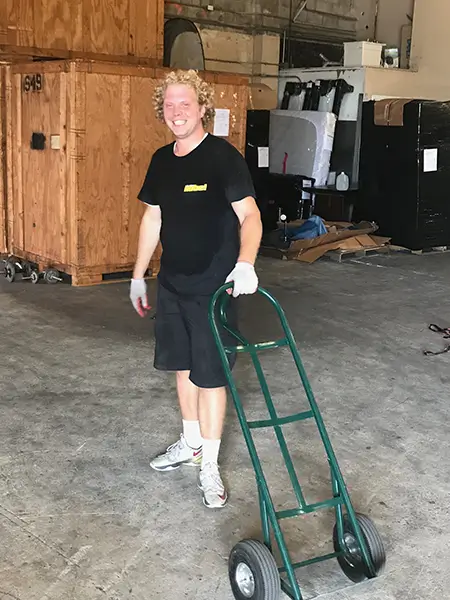 How to Find Family-Friendly Accommodation in Amsterdam
How to Find Family-Friendly Accommodation in AmsterdamWhether you’re after a rental contract or you want to buy, housing costs range around €25 per square meter. Just like the job market, the housing market is mainly available online, so check out listing sites like Funda, Pararius, Kamernet, or Direct Wonen.
You can also get in touch with local real estate agencies.
Rental costs are considered affordable for couples or families but not the best choice for single individuals with a limited income. There’s a shortage of properties available for less than €1,000 a month.
To help you get an idea, the housing costs for a two or three bedroom apartment to rent are about €2,000 a month.
Social housing is cheaper, but not the best option for the average American citizen looking for a new job or a new life in a new country.
Whether you own a business in Amsterdam, you’re pushing to get Dutch citizenship, or you live there for Dutch culture, it’s important for families to consider schooling for kids too. Finding an international school in Amsterdam is not difficult, though.
There are around 20 schools in Amsterdam that teach in English, as well as schools that teach in French or Japanese. While Dutch citizens aren’t really bothered because they speak the Dutch language, such a high number of international schools can only lead to one conclusion: the expat community is pretty big.
Dutch authorities require all residents to have health insurance from a private company. As for insurance companies, they’re required to accept everyone, too. Financing is usually public. The government is responsible for monitoring everything though.
Some of the main benefits include prescription medication, nursing, access to a physician, hospitalization, mental health care, and others. Your coverage in the Netherlands depends on your age. For example, kids are covered until they turn 18.
In the USA, the culture is based on standing out. In the Netherlands, it’s based on not showing off, regardless of how well you do. People on different or the same income act the same, regardless of how much tax they pay.
Talking about tax, there’s no need to worry about double taxation due to an agreement between countries.
Other cultural differences include a friendlier approach in the Netherlands. People cycle a lot, while in the USA, everyone just jumps in a car to get to the destination. Dutch is different from English, so it might be a bit of a challenge to learn it.
However, once you get work permits and integrate in society, it’ll be much easier.
Kids will find it much easier to master the language from an early age.
Once you move to the Netherlands, apart from a primary school in the Dutch capital, you’ll also have to find some activities for kids. Here are a few good options for start:
As for adults, moving to the Netherlands means you’ll also need to make friends. The TNW tech conference, the Upstream Festival, or perhaps Venture Café are ideal to make connections and new friends. There are lots of expat forums and groups over social media as well.
The thriving entrepreneurial scene means there are lots of opportunities to connect with working purposes too.
Public transportation in Amsterdam is cashless, so use your card. The whole Dutch municipality follows the same system, whether you’re getting to the town hall, your new workplace, or the outskirts.
You can get around using the bus, tram, ferry, train, or metro.
Based on your valid passport, employment contract, or self employment job, the cost of living is one of the main concerns. Cost of living in the Netherlands overall is about 25% lower than in the USA. An average salary after tax will cover your expenses for about two months, just like in the USA.
The Dutch economy is quite strong, as well as social security. Most people have sufficient income to look after themselves. Also, each Dutch employer pays differently, hence the importance of shopping around when looking for a job.
A highly skilled worker will obviously make more, yet additional documents may be required to prove skills.
Compared to Amsterdam, other cities provide more affordable housing for the average American expat. The healthcare will be the same. When considering a long stay visa, keep in mind that there are many highly skilled migrants in the area and your primary residence should be an affordable one.
Learn Dutch to overcome the language barrier and give yourself an advantage. If you’re on a low income, you may focus on getting a permanent address first. Cycle, rather than drive, you’ll save money there as well.
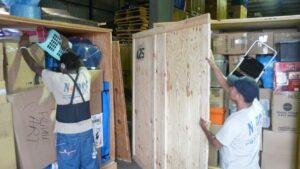 Amsterdam has a temperate maritime climate. During the summertime, the temperature averages 22 degrees Celsius. Winters bring in freezing temperatures. Since it’s close to the North Sea, Amsterdam is considered relatively windy, especially during the fall season.
Amsterdam has a temperate maritime climate. During the summertime, the temperature averages 22 degrees Celsius. Winters bring in freezing temperatures. Since it’s close to the North Sea, Amsterdam is considered relatively windy, especially during the fall season.
There are four seasons, so you’ll wear all kinds of clothes. Summers are nice and winters are cold, with a few in-between options during spring and fall.
Documents are critical when moving to another country, so that should be your main focus. Bring in your marriage certificate, birth certificate, documents for a potential permanent residency or a daft visa, documents for the naturalization service in the future, divorce certificate from the past, you name it.
In terms of clothing, it might be wiser to just invest in new clothes once you get to Amsterdam. Bring something suitable for the season and your favorite pieces, though. It will only take a few weeks to get everything back from local stores.
Other than that, your list may also include:
Bottom line, life in Amsterdam and the Netherlands overall will come with some changes, most of them positive. It’s a different lifestyle, but it’s modern, so it shouldn’t be too difficult to adapt.
It makes no difference if you move for higher living standards, a registered partnership, or with a business plan in mind. Anything you need can be tackled at local municipality offices, yet some things could be sorted out at a consulate general before you even move to the Netherlands.
Planning early is critical for a smooth application and this isn’t all about the residence application. Instead, you’ll have to shop for accommodation early too. Once you’re done with the administrative tasks, look for jobs and housing, as well as local facilities, like a doctor or a school for kids.
Moving is just as important in the process, whether you only take a few suitcases or you plan to move your whole home. Anything’s possible if you hire a professional service, but just like for anything else in life, a little research is mandatory upfront.




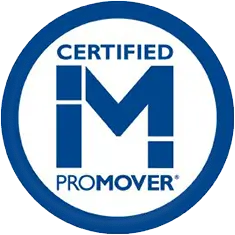

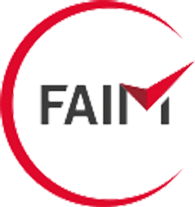
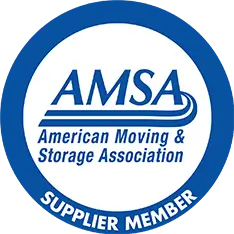
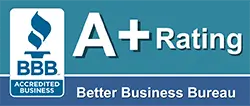

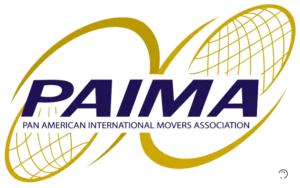
Ⓒ 2025 – All Rights Are Reserved – MEETOOG & DOR SALAMA